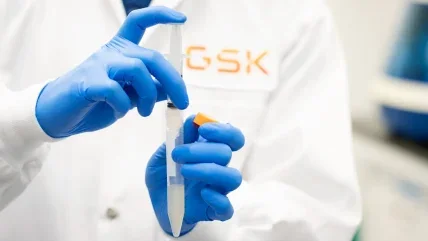
Pharma major GSK and US-based Center for Regenerative Medicine at Boston University and Boston Medical Center (CReM) have formed a collaboration to advance research into pulmonary fibrosis, a disease without a cure.
The collaboration aims to improve understanding of pulmonary fibrosis and identify new drug targets through the use of CReM-developed lung cells. The UK-based GSK will provide funding and indirect support for the initiative.
CReM founding director Darrell Kotton said: “This exciting collaboration with GSK will help BU, BMC, and CReM to make meaningful progress in the treatment of chronic lung diseases like pulmonary fibrosis.
“Together with GSK, we are poised to advance emerging research discoveries into real-world therapies for patients.”
Pulmonary fibrosis, a type of interstitial lung disease, can result from factors such as smoking, autoimmunity, and genetic disruptions. The disease causes scarring and stiffening of the alveoli, which are the tiny air sacs in the lungs, leading to shortness of breath and weight loss.
Existing treatments include medications to slow disease progression, supplemental oxygen for symptom relief, and lung transplants for some patients, but effective options remain limited, said Boston University.
For the past two decades, Kotton and his team have used stem cell technology to study lung disease development. Their research involves converting patient blood cells into lung cells for external study.
The process reprogrammes blood cells into induced pluripotent stem cells (iPSCs), which are then developed into lung cells. This method allows researchers to create lung models and observe disease progression.
Kotton, who is also a pulmonologist and critical care specialist at Boston Medical Center, said that there are two main applications for these lung cells. One application is to regenerate lung tissue through transplantation, which is progressing rapidly but remains a long-term goal.
The other is for drug development and discovery, which Kotton believes is ready for clinical application.
As part of the collaboration, CReM and GSK will expand their collection of patient specimens for use in disease modeling and drug development. The initial phase of the partnership will span three years, with the potential for continued collaboration.
Last month, GSK announced positive results from the Phase 3 MATINEE III trial of Nucala (mepolizumab), a monoclonal antibody targeting interleukin-5 (IL-5) in adults with chronic obstructive pulmonary disease (COPD).
The trial met its primary endpoint by adding Nucala to inhaled maintenance therapy, showing a statistically significant and clinically meaningful reduction in the annualised rate of moderate to severe exacerbations compared to placebo for patients treated for up to 104 weeks.






